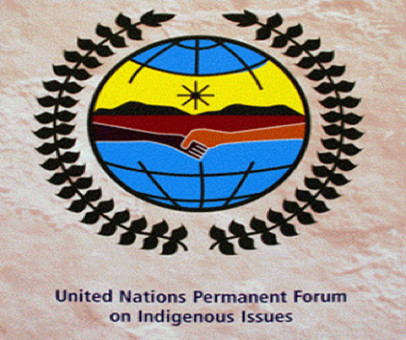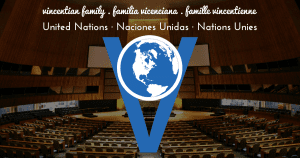17th Session of the United Nations Permanent Forum on Indigenous Issues (UNPFII) April 16-27, 2018
Theme: Indigenous Peoples’ collective rights to lands, territories and resources.

The General Assembly of the United Nations in September 2007 adopted the UN Declaration on the Rights of Indigenous Peoples which recognized the rights of indigenous peoples to their lands, territories and resources after 20 years of negotiations and discussions. This was a great achievement for the indigenous peoples who have suffered long from “colonization and dispossession of their lands, territories and resources, thus preventing them from exercising, in particular, their right to development in accordance with their own needs and interests.” They continue to face dispossession – there is a clear link to the loss of their lands to their marginalization, discrimination and underdevelopment.
Since the establishment of the Permanent Forum on Indigenous Issues in 2000 by the Economic and Social Council, the Indigenous peoples have ‘emphasized the spiritual, social, cultural, economic and political significance of lands, territories and resources to their identity, well-being and survival. The Permanent Forum in 2007 had emphasized the following principles, a basis for the survival of the indigenous communities:
- Indigenous peoples are entitled to effectively participate in drafting policies and laws related to resource management and development processes;
- Indigenous people have a central role in decision-making and implementation of land-and-resource-related projects;
- Indigenous peoples have a central role in dispute resolution over lands, territories and resources;
- States have an obligation to protect indigenous peoples’ right to lands territories and resources, and those rights must be effectively enforced through penalties for harmful activities on indigenous peoples’ lands;
- States have an obligation, in cooperation with indigenous peoples, to identify indigenous peoples’ lands and provide specific legal protection for the rights of ownership over those lands.
In spite of the rights and protections guaranteed in the Convention, indigenous peoples around the world face human rights violations and other atrocities. They are denied a place and space in the democratic processes. Indigenous leaders who are defending land, language, culture and the environment and human rights defenders face persecution from governments, corporations and extrajudicial actors. Many of the violations against indigenous human rights defenders take place in the context of the extractive industry, land rights and large scale projects, such as hydro-electric dams or oil and gas pipelines. Often they face death threats and many are killed with impunity. In fact, this phenomenon it is on the rise. The Special Rapporteur on the rights of indigenous peoples regularly draws attention to the threats against indigenous human rights defenders in country visits, reports and statements.
Many church groups and other organizations are committed to indigenous issues and are involved in education and advocacy efforts. Some of the relevant issues for reflection and action:
- The Doctrine of Discovery and its continuing impact through legitimization of extractive industries that displace and destroy many Indigenous Peoples and other vulnerable communities. There is need to work for a Doctrine of Reconciliation around this issue.
- Evangelization in relation to indigenous communities – historically and now.
- Respecting the spirituality, an integrated dimension of indigenous identity, culture and connection to the land – the whole universe.
- The need to build a movement of solidarity with indigenous peoples for access to justice and democratic processes.
- Advocacy with extractive industries.
- Advocate for the ratification of ILO Convention No. 169 concerning Indigenous and Tribal Peoples in Independent countries.
At the 2018 session, the Permanent Forum will build on its continuing work to provide the space and platform to identify opportunities for concrete action to recognize and strengthen the indigenous peoples’ rights to lands, territories and resources. The Forum will facilitate discussions among indigenous peoples, Member States, UN agencies and other stakeholders around good practices and challenges and recommend effective strategies to realize those rights.
The Forum will also follow up on the 2014 World Conference on Indigenous Peoples, prepare for the 2019 International Year of Indigenous Languages, and hone in on the realization of the 17 global goals, leaving no one behind.
Video: Protecting the rights and well-being of indigenous peoples: https://youtu.be/zpPhsOOvlbc
Those of you are interested in following the Indigenous Forum, can watch it live on: http://webtv.un.org/
You can read the paper on the theme here: http://www.un.org/en/ga/search/view_doc.asp?symbol=E/C.19/2018/5
Link to – Decolonizing the violence against Indigenous women – http://www.fpse.ca/sites/default/files/news_files/Decolonization%20Handbook.pdf
Teresa Kotturan, SCN, NGO Representative for Sisters of Charity Federation








0 Comments